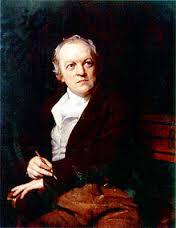MY STORY
SARAH (The Duchess of York)
There
are more than six hundred rooms in Buckingham Palace, but my life would be
contained in fewer than six of them. My new residence was Andrew’s old bachelor
quarters in East Wing. I just moved in with him. Through that was hardly the ‘done’
thing. It was never an issue, which makes me think about how the Palace was run
– that it could bend and ignore things when it cared to.
Our
apartment was on the second floor, on the corridor that overlooked the
chipped-stone quadrangle where I park my car. The corridor was papered in green
silk and carpeted in deep red, and it stretched for so long that one could
hardly see the end of it. It was lined with wardrobes and china cabinets and
oil of British Victoria at sea. One each door was fixed a typed card within a
brass holder, naming the royal resident therein.
The
pervading atmosphere, wrote Ingrid Seward, ‘is that of a gentleman’s club on a
wet afternoon; quite, understated and slightly faded’
Inside
our suite there were five rooms and two bath rooms in a row, with
interconnecting doors: a spacious flat, but hardly grandiose. The rooms were
done with Victorian density, much the same as when Andrew had lived there
alone, and Charles before him: damask curtains, pleated lampshades, bland
carpeting, brownish wallpaper.
The
exception to the color scheme was my dressing room, on one end, which Diana
redid in pink and white when she briefly lived here. Of ordinary size, it was
crammed with massive oak and rosewood wardrobes, a dressing table, and a large canopied
bed. Next in the line the dining room, where we’d entertain guests at the long
mahogany table, or work at our separate desks. But when Andrew and I dined
alone, we would move next door to the sitting room and set up at small serving
table by the television.
Finally
there were Andrew’s bedroom and dressing room, an absolute time warp. Dozens of
stuffed animals blanketed the bed, while pink teddies hugged each other atop a
lamp. Boys’ guns and bachelor bits lay everywhere – and I accepted it all as it
was. I didn't mind the weighty furniture, or the museum-piece clocks from the
Royal collection, or the sad electric fireplaces. I saw the apartment as a
transitional perch before the proper home we would get for ourselves. Watch a
film, have a glass of wine, and do not worry over the sofa being green or pink.
As one who’d never had her own flat, I wasn't used to taking over places and
making great changes.................
.jpg)


















